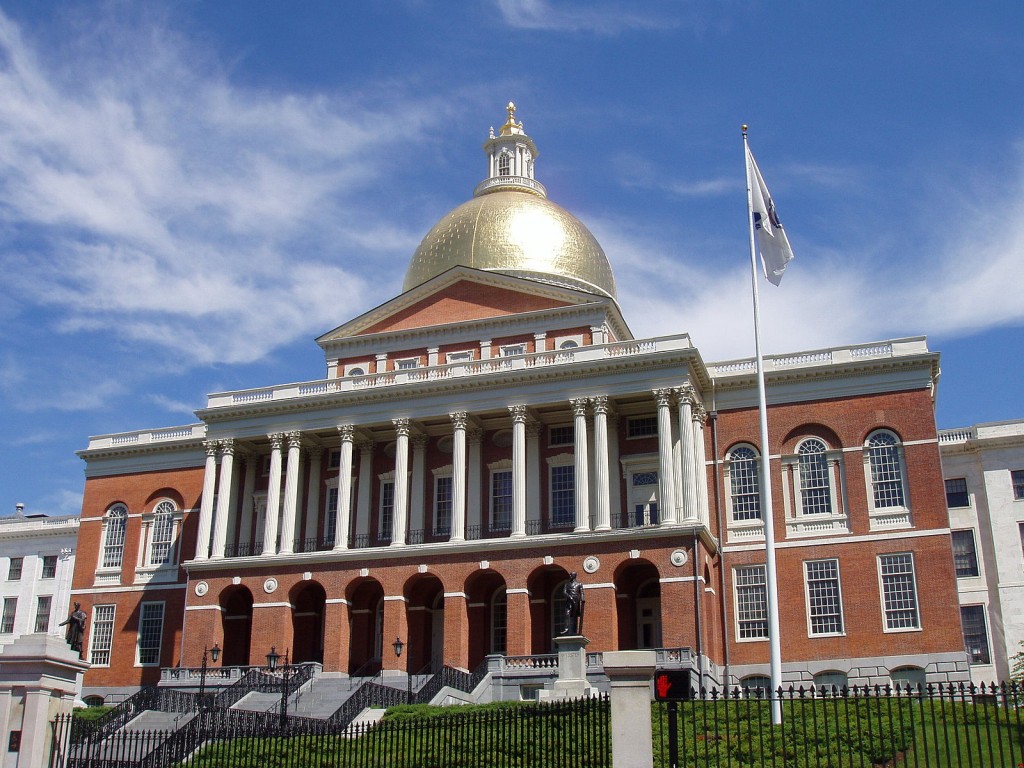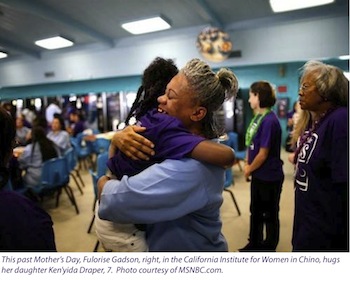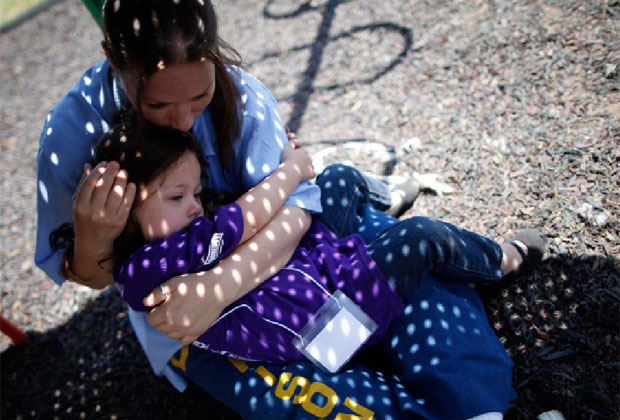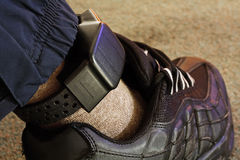From The Steering Committee of the Coalition for Effective Public Safety
NOTE DATE CHANGE BELOW!

The State House, Massachusetts
GOV. BAKER HAS NOMINATED YET ANOTHER CAREER PROSECUTOR TO SIT ON THE PAROLE BOARD. CALL YOUR GOVERNOR’S COUNCILLOR NOW TO OPPOSE THIS NOMINATION.
The governor has nominated Karen McCarthy, a prosecutor for the past 27 years at the Hampden County District Attorney’s Office, to fill a vacancy on the Parole Board. The Parole Board has seven members and McCarthy would be the fifth one from law enforcement. She is being nominated to fill the spot left by another career prosecutor, Paul Treseler, now a judge.
TELL YOUR GOVERNOR’S COUNCILLOR: NO MORE LAW ENFORCEMENT.
Massachusetts legislators envisioned a diversified parole board when they required that persons appointed to the Board have an undergraduate degree and at least five years of experience and training in one or more of the following fields: “parole, probation, corrections, law, law enforcement, psychology, psychiatry, sociology [or] social work.” Our present Parole Board already has four members who have spent their careers in law enforcement– (Chair Gloriann Moroney, former Suffolk ADA), corrections (Sheila Dupre and Colette Santa), parole (Tina Hurley)– and one in law (Tonomey Coleman).
At present, there is only one person from human services on the Board, psychologist Charlene Bonner, who has been sitting in holdover status for a year because the governor has not re-appointed her.
When parole boards are dominated by law enforcement, hearings are often an attempt to re-try the crime. Board members lack the expertise to ask more meaningful questions about recovery from mental illness and participation in sex offender and substance use treatment programs. However, given that 80% of the incarcerated population suffers from these ailments, we desperately need people on the Parole Board who have dedicated their careers to substance use and mental health treatment, trauma informed practices and adolescent brain development.
CALL YOUR COUNCILLOR NOW: Nominations to the Parole Board must be approved by a majority vote of the eight-member Governor’s Council. We can make a difference. Act now!
● Urge your councillor to vote “no” on Karen McCarthy’s nomination.
● Tell your councillor that we need an experienced social worker, another forensic or clinical psychologist or a psychiatrist on the Board who has experience working with persons with substance use disorders, mental illness, and trauma; and understands adolescent brain development.
● Ask your councillor to confirm only those who have demonstrated a belief in redemption and value rehabilitation and transformation.
● Tell your councillor that a diverse Board combats a purely punitive approach to parole and is a necessity for fairness.
_________________________________________________________
THE PAROLE BOARD’S JOB:
Parole is an important public safety tool that, when properly administered, eases re-entry problems, lowers recidivism, and results in significant cost-savings. As 70 community groups noted in a 2017 letter to Governor Baker and Chief Justice Gants, it has been understood for decades that formerly incarcerated people reoffend at significantly lower rates when they receive appropriate support and supervision on parole. In Massachusetts, however, due to our very low parole rates, most parole-eligible people complete or “wrap up” their sentences in prison and transition home with no help and no oversight.
It is the job of the Parole Board to understand and predict behavior. Our system of parole only works when the Parole Board is made up of a well-rounded group of people who have the expertise necessary to properly evaluate candidates for parole. As the Parole Board gains more and more members with backgrounds in law enforcement, the parole rates drop correspondingly and precipitously. When parole rates drop, the rates of recidivism rise. A lack of diversification on the Parole Board not only leads to lower parole rates, but it also leads to less informed parole hearings and decisions. The vacancy on the Board must be filled by someone who believes in parole and second chances and who has education, training and expertise in mental illness, substance use, trauma and adolescent brain development.
PAROLE IS NOT WORKING IN MASSACHUSETTS:
● We have extremely low parole rates, which means we have too many people incarcerated; many persons who are ready for parole are being passed over by this law-enforcement-leaning Board. See June 2018 letter to Governor signed by 45 community groups.
● People on parole are being returned to prison for very low-level technical violations, instead of receiving appropriate treatment in the community, again leading to unnecessary incarceration.
● The Parole Board is not ruling on Commutation Petitions and Requests to Terminate Parole. Some have been pending for over three years, again leading to unnecessary incarceration.
● The Board takes up to a year to rule on parole-eligible lifers’ requests for parole. This contributes to unnecessary incarceration and is evidence of a poorly run Board.
● The Board’s failure to maximize parole supervision is extremely costly for taxpayers. According to DOC, the average annual cost of housing a state prisoner is $70,892, while the estimated cost of a year of parole supervision is less than $10,000. (The Board reported an annual cost of $5,000 in 2013.)
________________________________________________________
COME TO THE PUBLIC HEARING AT THE GOVERNOR’S COUNCIL on June 19th at 11:00 am – Room 360 at the Statehouse. YOUR PRESENCE IS IMPORTANT.
But right now, WE NEED YOU TO MAKE CALLS BEFORE THE JUNE 12th HEARING. IF YOU CANNOT CALL, PLEASE SEND AN EMAIL TO YOUR COUNCILLOR.
__________________________________________________________
FIND YOUR DISTRICT: http://www.sec.state.ma.us/ele/eledist/counc11idx.htm
MASSACHUSETTS GOVERNOR’S COUNCILLORS. HERE ARE THE PHONE NUMBERS/EMAIL ADDRESSES TO USE.
Joseph C. Ferreira – District 1
7 Thomas Drive
Somerset, MA 02726
GC: 617-725-4015, ext. 1
Fax: 508-230-2510
Email: jferreira@lynchlynch.com
Robert L. Jubinville – District 2
487 Adams Street
Milton, MA 02186
GC: 617-725-4015, ext. 2
Bus: 800-828-9010
Fax: 617-698-8004
Email: Jubinville@comcast.net
Marilyn M. Petitto Devaney – District 3
98 Westminster Avenue
Watertown, MA 02472
GC: 617-725-4015, ext. 3
Cell: 617-840-7689
Fax: 617-727-6610
Email: marilyn.p.devaney@gov.state.ma.us or marilynpetittodevaney@gmail.com
Christopher A. Iannella – District 4
263 Pond Street
Boston, MA 02130
GC: 617-725-4015, ext. 4
Bus: 617-227-1538
Fax: 617-742-1424
Email: caiannella@aol.com
Eileen R. Duff – District 5
8 Barberry Heights Road
Gloucester, MA 01930
GC: 617-725-4015, ext. 5
Bus: 978-927-8700
Fax: 617-727-6610
Email: eileenduff3@gmail.com
Terrence W. Kennedy – District 6
3 Stafford Road
Lynnfield, MA 01940
GC: 617-725-4015, ext. 6
Bus: 617-387-9809
Fax: 617-727-6610
Email: twkennedylaw@gmail.com
Jennie L. Caissie – District 7
53 Fort Hill Road
Oxford, MA 01540
GC: 617-725-4015, ext. 7
Bus: 508-765-0885
Fax: 508-765-0888
Email: jcaissie@caplettelaw.com
Mary E. Hurley – District 8
15 Fields Drive
East Longmeadow, MA 01028
GC: 617-725-4015, ext. 8
Bus: 413-785-5300
Fax: 413-733-3042
Email: mhurley@pellegriniseeley.com






